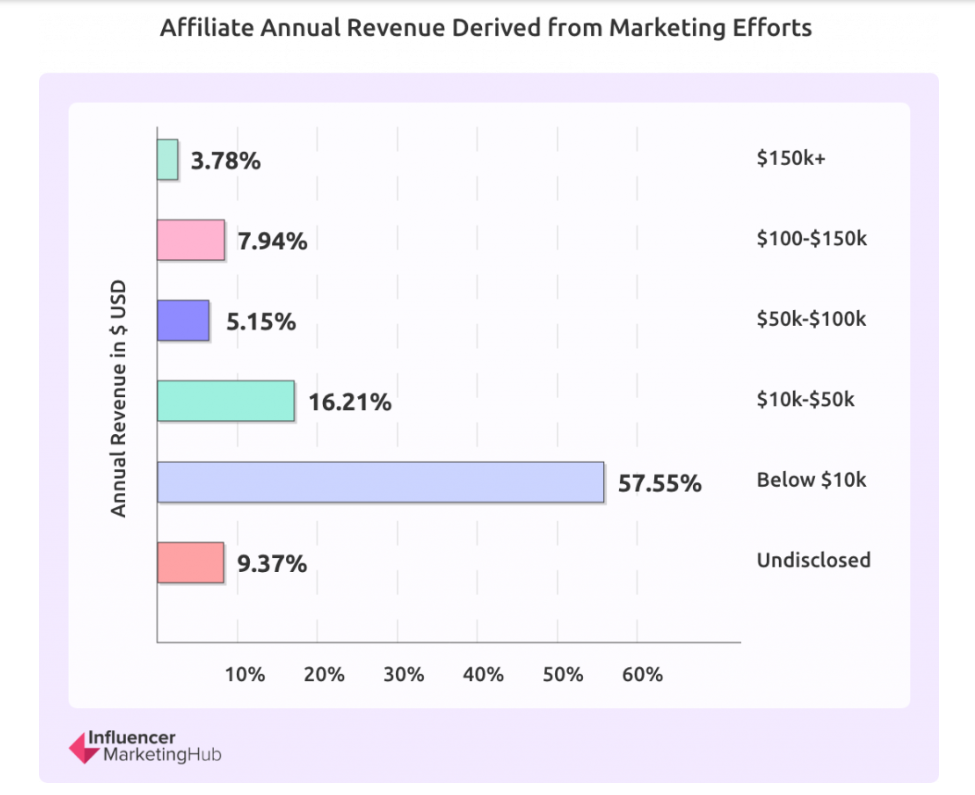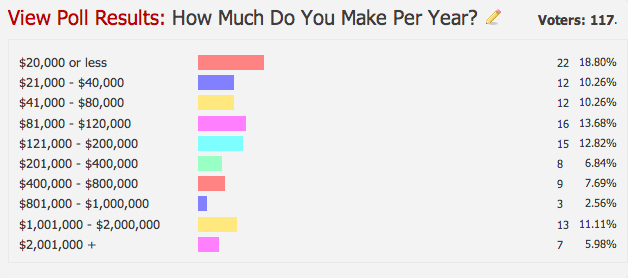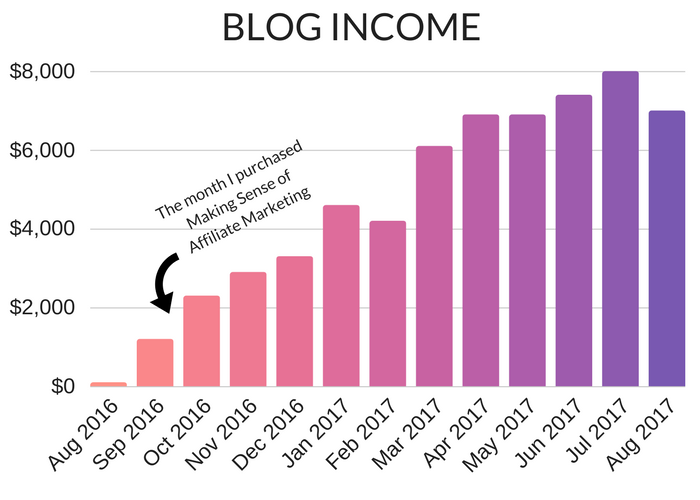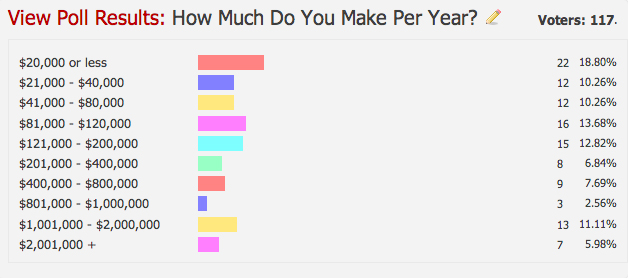In this article, we’ll take a closer look at the average monthly earnings for beginner affiliate marketers. We’ll explore the factors that can influence their income, such as niche selection, marketing strategies, and audience engagement. By the end, you’ll have a better understanding of what to expect in terms of earning potential as a beginner affiliate marketer.

Understanding Affiliate Marketing
affiliate marketing is a popular method for individuals to earn income online by promoting other companies’ products or services. As a beginner affiliate marketer, it is essential to understand how this business model works and the potential benefits it offers.
What is affiliate marketing?
At its core, affiliate marketing involves three parties: the affiliate marketer, the merchant, and the customer. The affiliate marketer promotes the merchant’s products or services and earns a commission for each sale or lead generated through their referral.
How does affiliate marketing work?
To get started in affiliate marketing, you need to join an affiliate program. These programs are offered by companies looking to leverage the marketing power of affiliates to increase their sales. Once you join a program, you will receive a unique affiliate link that tracks your referrals.
As an affiliate marketer, you can promote products or services through various channels, such as a website, blog, social media, email marketing, or video content. When a customer clicks on your affiliate link and makes a purchase or completes a specific action, like filling out a form, the commission will be credited to your account.
The benefits of affiliate marketing
Affiliate marketing offers several advantages for beginner marketers. Here are some of the key benefits:
-
Low Startup Costs: Starting an affiliate marketing business requires minimal investment compared to other business ventures. You don’t need to create and maintain your own products or inventory.
-
Flexibility: Affiliate marketing allows you to work from anywhere and at any time. You have the freedom to choose the products or services you want to promote and the strategies you want to implement.
-
Unlimited Earning Potential: Unlike traditional employment, affiliate marketing offers the opportunity to earn passive income. As your audience and customer base grow, your earning potential also increases.
-
Diversification: With affiliate marketing, you can promote multiple products or services from different merchants. This diversification helps mitigate risks and increases your chances of earning income from various sources.
The role of beginner affiliate marketers
As a beginner affiliate marketer, it’s important to understand your role in the affiliate marketing ecosystem. Here are some key points to keep in mind:
-
Product Research: Spend time identifying profitable niches and products that align with your interests and target audience. This involves analyzing market trends, competition, and customer demand.
-
Content Creation: Creating high-quality content that educates, entertains, or solves a problem for your audience is crucial. It helps build trust, establishes you as an authority, and encourages visitors to click on your affiliate links.
-
Traffic Generation: Once you have valuable content, you need to drive targeted traffic to your website or platform. This can be achieved through search engine optimization (SEO), social media marketing, paid advertising, or other promotional strategies.
-
Conversion Optimization: Converting visitors into customers requires effective conversion optimization tactics. This includes using persuasive copywriting, compelling call-to-actions, and enhancing user experience on your website or landing pages.
-
Relationship Building: Building relationships with your audience and the merchants you promote is essential for long-term success. Engage with your audience through comments, emails, or social media interactions. Communicate with merchants to negotiate better commission rates or access exclusive offers.
Factors Affecting Earnings
The income potential in affiliate marketing can vary widely based on various factors. Let’s explore these factors that affect how much beginner affiliate marketers make:
Quality and popularity of the affiliate program
The affiliate programs you choose to join play a significant role in your earning potential. High-quality programs with reputable merchants tend to offer better commission rates, longer cookie durations, and reliable tracking systems. It’s essential to thoroughly research and evaluate affiliate programs before signing up.
Type of products or services promoted
Certain products or services have higher profit margins, resulting in higher commissions for affiliate marketers. Digital products, such as online courses or software subscriptions, often offer higher commission rates compared to physical products. Additionally, recurring commission structures can provide a steady income stream over time.
Commission structures
Different affiliate programs offer various commission structures. Some programs pay a fixed percentage commission for each sale referred, while others offer a flat fee per lead or a hybrid model combining both. It’s important to understand the commission structure and calculate potential earnings based on your expected conversion rates.
Target audience demographics
The purchasing power and behavior of your target audience significantly impact your earnings. If your audience consists of high-income individuals or professionals in a specific niche, they are more likely to make higher-value purchases, resulting in higher commissions. Understanding your audience’s demographics and preferences can help you tailor your marketing strategies to maximize earnings.
Marketing and promotional strategies
The effectiveness of your marketing and promotional strategies directly influences your earnings. The ability to drive targeted traffic, engage your audience, and persuade them to make a purchase or take action determines your conversion rates. Experimenting with various tactics, optimizing your campaigns, and continuously learning and adapting are important for maximizing your income.
Typical Income Ranges
While the income potential in affiliate marketing is vast, it’s essential to have realistic expectations, especially as a beginner affiliate marketer. Let’s explore the typical income ranges for beginners:
Low-end earnings for beginner affiliate marketers
As a beginner in affiliate marketing, your initial earnings may be relatively low. It takes time to build an audience, establish your online presence, and optimize your marketing strategies. On average, beginner affiliate marketers may earn anywhere from a few dollars to a few hundred dollars per month during their initial stages.
Average earnings for beginner affiliate marketers
As you gain experience and refine your strategies, your earnings will likely increase. On average, beginner affiliate marketers can expect to earn a few hundred to a few thousand dollars per month. This depends on factors such as the niche, product type, traffic volume, and conversion rates.
High-end earnings for beginner affiliate marketers
While it’s possible to achieve high earnings as a beginner affiliate marketer, it’s not typical. Some beginners who have exceptional skills, targeted niche selection, and effective marketing strategies can earn several thousand dollars per month. However, these cases are not the norm and require significant effort, dedication, and continuous optimization.
Case studies of successful beginner affiliate marketers
Looking at real-world case studies can provide valuable insights into the earnings potential of beginner affiliate marketers. Several success stories highlight individuals who started from scratch and built profitable affiliate marketing businesses. These case studies showcase different strategies, niches, and income ranges, providing inspiration and guidance for beginners.
Building a Profitable Affiliate Marketing Business
To maximize your earnings as a beginner affiliate marketer, it’s important to build a profitable and sustainable business. Here’s a step-by-step guide to help you on your journey:
Choosing a profitable niche
Selecting a profitable niche is crucial to your success as an affiliate marketer. Research various niches to find those with high demand, low competition, and profit potential. Consider your interests, expertise, and the market’s needs when choosing your niche.
Selecting high-quality affiliate programs
Carefully evaluate and choose affiliate programs with reputable merchants that align with your niche and target audience. Look for programs that offer competitive commission rates, good conversion rates, and reliable tracking systems.
Building an audience and following
Focus on building an engaged audience and loyal following in your niche. Create valuable content that resonates with your target audience and encourages them to become regular visitors to your platform. Engage with your audience through comments, social media, and email marketing to foster a sense of community and trust.
Creating valuable content
Invest time and effort in creating high-quality content that provides value to your audience. This can include blog posts, product reviews, tutorials, videos, podcasts, or any other content format that suits your niche and target audience. Aim to educate, entertain, or solve a problem for your audience.
Implementing effective SEO techniques
Search engine optimization (SEO) is crucial for driving organic traffic to your website. Conduct keyword research to identify relevant keywords and incorporate them naturally into your content. Optimize your website structure, meta tags, headings, and images to improve your search engine rankings.
Utilizing social media for promotion
Leverage social media platforms to expand your reach and promote your affiliate products or services. Identify social media channels frequented by your target audience and create engaging and shareable content. Build a strong social media presence by actively engaging with your followers and participating in relevant communities and groups.
Email marketing strategies
Build an email list from your website visitors by offering valuable incentives, such as downloadable guides or newsletters. Segment your email list based on interests and preferences to send targeted promotions and recommendations. Implement effective email marketing strategies to nurture your subscribers and encourage conversions.
Generating organic traffic
In addition to SEO, explore other methods of generating organic traffic, such as guest blogging, influencer collaborations, or participating in relevant online forums. Building backlinks from reputable websites can improve your search engine rankings and increase your organic traffic.
Scaling and expanding the business
Once you have established a profitable affiliate marketing business, consider scaling and expanding your income streams. This can involve diversifying into multiple niches, launching your own products or services, or partnering with other affiliates or businesses for joint ventures.

Investment and Expenses
While affiliate marketing can be a cost-effective business venture, there are certain investments and expenses to consider. Here are some common investment requirements and expenses associated with affiliate marketing:
Initial investment requirements
Getting started in affiliate marketing typically requires minimal initial investment. However, there are some essential expenses to consider, such as purchasing a domain name, website hosting, and possibly website design or development. These costs can vary depending on your preferences and the complexity of your website.
Tools and resources needed
To effectively manage your affiliate marketing business, you may need to invest in various tools and resources. These can include keyword research tools, analytics software, email marketing platforms, content management systems, and social media management tools. Research and choose tools that align with your specific needs and budget.
Advertising and promotion costs
While organic traffic is the primary goal for affiliate marketers, paid advertising can sometimes be a viable option to boost your reach and conversions. Consider allocating a portion of your budget towards paid advertising platforms such as Google Ads, Facebook Ads, or influencer collaborations. It’s important to track and analyze your advertising campaigns to ensure they are generating a positive return on investment (ROI).
Additional expenses to consider
Beyond the initial investments and ongoing tools, there may be additional expenses to consider for running your affiliate marketing business. These can include content creation costs (if outsourcing), website maintenance, graphic design services, legal fees (for website compliance and privacy policy), and educational resources to enhance your skills and knowledge.
Income Generation Timelines
The timeline for generating income as a beginner affiliate marketer can vary depending on various factors. Here’s a breakdown of short-term, medium-term, and long-term income expectations:
Short-term income expectations
In the short term, it’s realistic to expect minimal income as a beginner affiliate marketer. This is because building a strong foundation, establishing your online presence, and gaining traction takes time. It’s essential to focus on creating valuable content, driving targeted traffic, and building relationships with your audience and merchants.
Medium-term income expectations
As you gain experience and refine your strategies, your income will likely increase in the medium term. On average, beginner affiliate marketers can expect to earn a few hundred to a few thousand dollars per month within their first year. This income will largely depend on the niche, product type, traffic volume, and conversion rates.
Long-term income expectations
With continuous effort, dedication, and optimization, the long-term income potential in affiliate marketing is substantial. Successful affiliate marketers can earn tens of thousands of dollars per month or even more. However, it’s important to note that reaching this level of income typically requires several years of consistent growth, strategic partnerships, and multiple income streams.

Challenges and Obstacles
While affiliate marketing offers great income potential, it’s not without its challenges and obstacles. Here are some common challenges you may face as a beginner:
Building initial trust and credibility
As a beginner affiliate marketer, establishing trust and credibility with your audience can be a challenge. Building a strong online presence, providing valuable content, and genuinely recommending products or services you believe in can help overcome this challenge.
Competitive market landscape
Affiliate marketing is a highly competitive industry, with thousands of marketers vying for the attention of the same target audience. It’s crucial to find unique selling propositions and differentiate yourself from competitors to stand out and capture your audience’s attention.
Adapting to industry trends and changes
The digital marketing landscape and affiliate marketing industry are constantly evolving. Staying up to date with industry trends, algorithm updates, and changes in consumer behavior is essential for maintaining your competitive edge and adapting your strategies accordingly.
Balancing time and effort
Running a successful affiliate marketing business requires time and effort. As a beginner, you may have to balance your affiliate marketing venture with other commitments, such as a full-time job or family responsibilities. Managing your time effectively, setting realistic goals, and staying motivated can help you overcome this challenge.
Overcoming self-doubt and setbacks
It’s common for beginner affiliate marketers to experience self-doubt and setbacks along their journey. It’s important to remember that success takes time and persistence. Embrace failures as learning opportunities, seek guidance from mentors or experienced marketers, and stay resilient in the face of challenges.
Resources and Support
As a beginner affiliate marketer, there are several resources and support systems available to help you succeed. Here are some valuable resources to consider:
Affiliate marketing training courses
Numerous online training courses provide comprehensive education on affiliate marketing. These courses offer step-by-step guidance, tutorials, case studies, and resources to help you learn the fundamentals and advanced strategies of affiliate marketing.
Online communities and forums
Join online communities and forums dedicated to affiliate marketing. These platforms provide opportunities to connect with fellow marketers, ask questions, share experiences, and gain insights from industry professionals. Engaging in these communities can help you stay motivated, learn new techniques, and get support when needed.
Mentorship and coaching programs
Consider seeking mentorship or enrolling in coaching programs offered by experienced affiliate marketers. These programs provide one-on-one guidance, personalized strategies, and accountability to help you accelerate your learning and success.
Networking events and conferences
Attending networking events and industry conferences can be beneficial for expanding your network, gaining industry insights, and connecting with merchants, potential partners, and affiliate managers. These events provide valuable learning opportunities and can help you establish relationships that can enhance your affiliate marketing business.
Building a Sustainable Income
As a beginner affiliate marketer, it’s important to focus on building a sustainable income rather than solely relying on short-term gains. Here are some strategies to achieve long-term success:
Diversifying income streams
To mitigate risks and increase your earning potential, consider diversifying your income streams. Explore different niches, promote products from multiple merchants, and possibly launch your own products or services. By diversifying, you can create stability and multiple revenue sources.
Creating passive income opportunities
Passive income is a key goal for many affiliate marketers. By setting up automated systems, such as email marketing funnels, evergreen content, or affiliate website monetization, you can generate income even when you’re not actively promoting. Prioritize creating passive income opportunities to achieve financial freedom.
Developing long-term partnerships
Building strong relationships with merchants and affiliate networks can lead to exclusive collaborations, higher commission rates, and better support. Establish yourself as a trustworthy and valuable affiliate by consistently promoting high-quality products and providing exceptional customer service.
Continuous learning and growth
The affiliate marketing industry is dynamic, and staying updated with the latest trends, technologies, and marketing strategies is crucial for maintaining a competitive edge. Continuously invest in your personal and professional growth through ongoing education, attending conferences, and staying connected with industry professionals.
The Importance of Patience and Persistence
One of the most significant factors for success in affiliate marketing is having patience and persistence. Building a profitable business takes time, and it’s important to embrace a long-term mindset. Here’s why patience and persistence are essential:
Understanding the time it takes to build a successful affiliate marketing business
Affiliate marketing is not a get rich quick scheme. It takes time to build a strong foundation, attract a relevant audience, and optimize your marketing strategies. Understand that success doesn’t happen overnight and be prepared to invest the necessary time and effort.
Embracing a long-term mindset
Having a long-term mindset is crucial to endure the challenges and setbacks you may encounter along the way. Consistency, continuous learning, and adaptability are key to achieving long-term success as an affiliate marketer.
Staying motivated during challenging times
There will be times when you face challenges, experience slow growth, or doubt your abilities. Staying motivated and maintaining a positive mindset is essential during these times. Celebrate small victories, surround yourself with a supportive community, and always remember your long-term goals.
Learning from failures and adjusting strategies
Failure is a natural part of any entrepreneurial journey, including affiliate marketing. Instead of getting discouraged, embrace failures as valuable learning experiences. Analyze what went wrong, adjust your strategies, and use these lessons to improve and grow your business.

Tracking and Analyzing Performance
Tracking and analyzing your performance is crucial for optimizing your affiliate marketing campaigns and maximizing your earnings. Here are some key areas to monitor:
Monitoring clicks, conversions, and sales
Track the number of clicks on your affiliate links, as well as the conversion rates and sales generated. This data allows you to identify which products, promotions, or strategies are most effective. Monitoring these metrics helps you optimize your campaigns to increase your revenue.
Utilizing analytics tools
Utilize analytics tools, such as Google Analytics or affiliate platform tracking systems, to gain insights into your website’s traffic, user behavior, and conversion rates. Analyze this data to identify patterns, trends, and areas for improvement.
Identifying trends and optimizing campaigns
Stay informed about industry trends and adjust your marketing strategies accordingly. Continuously test different promotional campaigns, landing pages, and content formats to optimize your conversion rates. Regularly review your analytics data to identify opportunities for improvement and adjust your campaigns accordingly.
Making data-driven decisions
Use the insights gained from tracking and analyzing your performance to make informed business decisions. Rely on data rather than intuition or guesswork when adjusting your marketing strategies, selecting promotional channels, or evaluating the success of your campaigns.
Legal and Ethical Considerations
As an affiliate marketer, it’s crucial to adhere to legal and ethical standards to maintain trust with your audience and comply with regulations. Here are some key considerations:
Compliance with affiliate program terms
Read and understand the terms and conditions of the affiliate programs you join. Adhere to the program’s guidelines and restrictions, including rules for promotional methods, use of trademarks, and content creation.
Disclosing affiliate relationships
Transparently disclose your affiliate relationships to your audience. In many jurisdictions, it is mandatory to disclose that you may earn a commission for purchases made through your links. Failure to disclose your affiliate relationships can lead to legal consequences and damage your reputation.
Ethical marketing practices
Adhere to ethical marketing practices by promoting products or services that are genuinely beneficial to your audience. Avoid deceptive tactics, false claims, or unethical persuasion techniques. Your reputation as an affiliate marketer depends on your ethical conduct.
Protecting consumer privacy
Respect your audience’s privacy by following best practices for data protection and complying with applicable data protection laws. Clearly communicate your privacy policy and how you handle personal information obtained through your website or marketing campaigns.
Advice from Successful Affiliate Marketers
Learning from experienced professionals can provide valuable insights and guidance for beginner affiliate marketers. Here are some lessons and best practices shared by successful affiliate marketers:
Lessons and insights from experienced professionals
Experienced affiliate marketers often emphasize the importance of building relationships, providing value to your audience, and staying focused on your goals. They often encourage continuous learning and experimentation to adapt to the ever-changing industry landscape.
Best practices for beginners
Some common best practices for beginner affiliate marketers include finding a niche you are passionate about, creating valuable and engaging content, diversifying your income streams, and focusing on building a loyal audience.
Words of wisdom for long-term success
Successful affiliate marketers stress the importance of perseverance, embracing failure as a learning opportunity, and staying adaptable in a rapidly evolving industry. They emphasize the value of building trust with your audience and merchants as a foundation for long-term success.
Conclusion
Affiliate marketing offers a range of income opportunities for beginners. While it is achievable to earn a substantial income as a beginner, it requires dedication, strategy, and continuous learning. By implementing effective techniques, staying persistent, and embracing a long-term mindset, beginner affiliate marketers can achieve financial growth and build a profitable affiliate marketing business. As you embark on your affiliate marketing journey, remember that success will not come overnight. Stay focused, put in the effort, and continuously refine your strategies to maximize your income potential.
